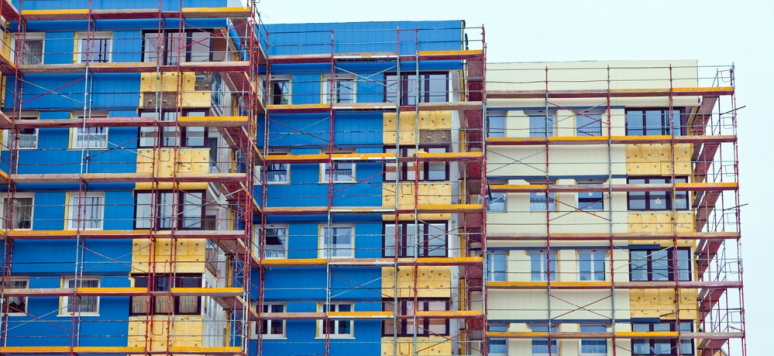Etudes de l'Ifri - The Renovation Wave: A Make or Break for the European Green Deal Etudes de l'Ifri, October 2020

European buildings are old and too often inefficient, past policies have not delivered and the amount of investment into energy efficiency must be scaled up dramatically to meet the 2030 targets and ultimately, the carbon neutrality objective.
Building renovations are too slow and insufficient. The European Union (EU) and its Member States (MS) need to critically accelerate its efforts, for instance by multiplying by up to 4 the number of deep building renovations every year.
Why is the renovation market so difficult to kick-start? The sector is extremely complex, with number of different buildings, regulations and actors, at all levels, from the European to the local one. This means that coordination of the different stakeholders is a major challenge. In addition, building renovation policies may be slowed down by some of the traditional European weaknesses: lengthy processes, different interests of lobbying groups, weak implementation of the regulations, a lack of knowledge or trust from the tenant or home-owners, financing and technology issues, etc.
There are reasons to be cautiously optimistic though. Regulations have accelerated energy efficiency investments in buildings over the past decade, despite the 2008 crisis, and altogether, household energy efficiency has improved of approximately 30% since 2000. Some innovative and promising policies are being implemented in many countries. The call of Ursula von der Leyen to establish a European Bauhaus points to new creative and efficient ways to promote building renovation across the continent.
The construction sector needs clear signals on the future of the building renovation market in order to adapt its training strategies with less emphasis on new building and more on renovation. Lastly, the Renovation Wave cannot succeed without a sustained effort to ramp up skills and the number of qualified jobs in this sector, with state-of-the art technologies becoming a standard all across the EU, alongside the use of low carbon and ideally, sustainable renovation materials.
To be more successful than previous attempts, the European strategy requires:
A stronger policy leadership and a better coordination at the European level with the generalization of a “whole-of-government approach”, ensuring more coordination between the different departments and sectors that are/should be concerned with building renovation (health, climate change, jobs, etc.). This is crucial in order to better understand the benefits of building renovation and coordinate policies that will touch upon broader areas (such as smart cities, electrification).
More ambition and proactivity from MS. This would require:
- A strong acceleration of public buildings renovation;
- Better data collection and maintenance work, as well as monitoring, reporting and verification on the results of the existing programs;
- Better dissemination of key technologies such as passive houses, building information modeling, or district energy systems;
- More research and support policies on innovative approaches and tools such energy sufficiency.
A more efficient market regulation in order to help consumers better understand and benefit from renovation services, more specifically:
- The generalization of “Building renovation passports”, using the Belgian “Woningpas”, French “Passeport Efficacité Energétique” or the German “Individueller Sanierungsfahrplan” as models. These are established based on energy audits and quality criteria, and they provide with long-term renovation roadmaps that can be used to plan deep renovations;
- Increase the role of local actors, that could play the role of “one-stop-shops” on building renovations: from cities to local energy communities. These would benefit from the creation of local agencies providing the dwellers with more tailored information on building renovation.
Finally, new approaches could be explored, such as zero-interest rate loans or mandatory building renovations.
